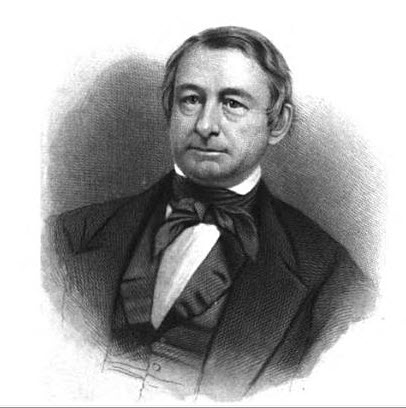May 11,
1846 - U.S. Congress
A bill declaring that a state of war exists between this country and Mexico
passed in the U.S. House of Representatives with 174 voting in the affirmative
and 14 in the negative. Included among the minority were: John Quincy
Adams and Daniel P. King of Massachusetts.
The Young Whigs
“stood aghast when the majority of the Whig party bowed to the fait accompli” of
the annexation of Texas by joint resolution in Congress.
[1] “ A member from South
Carolina had declared that 'every foot of territory we shall permanently occupy
south of thirty-six degrees, thirty minutes, will be Slave territory:” He
affirmed this to be 'the known determination of the southern people', expressing
a belief that the North and West would not 'resist to the death' such a
consummation, and that 'the Union will never be dissolved on that question.'
He planted his conviction on 'the laws of God;' and in answer to a question put
by another member, had the assurance to say, 'I will answer for God; because the
opinion is written in his revealed word. I can speak authoritatively on
this point.'
In reply to
his arrogant positions, Daniel said, “The gentleman may represent the South, and
probably does; but he has shown no credentials from heaven, and the North is
here to speak for itself. Because the North has already yielded much, the
South expects greater concessions; because, by stratagem or treason, they have
got possession of the outposts, they now expect us to surrender the very
citadel. For once, let the South know that some northern men have northern
principles; that though they love their favor and approbation much, they love
more the favor and approbation of their own neighbors and constituents. On
this great question of the extension of slavery, with all its fearful
consequences, let it never be said of any one representative of the free states,
that he sold his vote, and, like the base Judean, for a few pieces of dirty
silver, threw away a pearl worth more than all prospects of political
advancements, worth more than all prospects of earthly enjoyment.”[2]
